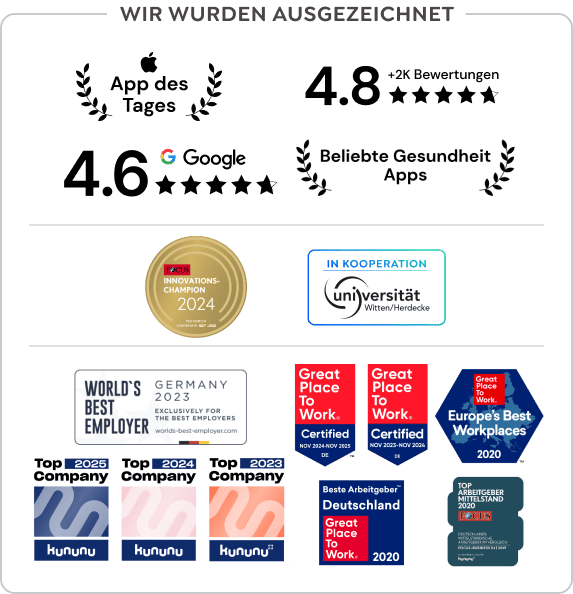| Refresh | This website greator.com/en/positioning-2/ is currently offline. Cloudflare's Always Online™ shows a snapshot of this web page from the Internet Archive's Wayback Machine. To check for the live version, click Refresh. |

The number of start-ups is steadily increasing. This is evidenced by the KfW Start-up Monitor. However, not all start-ups are sustainable. The decisive factor for success or failure is often a clear positioning on the market.
In the field of marketing, positioning means that your target group identifies your company or you as a service provider with the desired characteristics for which you want to stand. The focus is on communicating a clear benefit to the (potential) clientele. In addition, a clearly positioned brand stands out from the competition. Keyword: unique selling proposition.
Positioning is therefore an elementary marketing strategy that should be thoroughly thought through. If you succeed in positioning yourself, this significantly increases the incentive to buy for your target group. Your customers will consciously choose your brand and know exactly which advantages set you apart from your competitors. You offer your customers a buying experience they can't get anywhere else.
Let's summarize the key features of positioning once again in compact form:
The main goal of corporate positioning is to present a company's image to business partners, customers and employees. memorable and positive image build up. In customer communication, the focus is on communicating the unique selling proposition.
The central questions of corporate positioning are:
It should be possible to answer these questions unequivocally and unambiguously. Here, it is of course important that the desired image conforms to the external perception of the company. Ensuring this is the responsibility of the marketing department.
The marketing measures selected should present the current offering as originally as possible. For this purpose, catchy slogans are suitable, for example, which are used in the Memory remain. These can be funny or even a little absurd. The best-known and most successful advertising slogans include:
Anyone who hears one of these slogans can immediately associate it with the respective brand and associates a certain image with it. This is exactly what positioning is all about. In addition to slogans, the choice of corporate logo and corporate colors also plays an important role. Here it is important to ensure that there is no potential for confusion with other companies or brands.

We have already mentioned it several times, so we would like to define the term "unique selling proposition" once again in more detail. As the term suggests, a USP is a unique customer proposition that sets you apart from your competitors. In business language, this is referred to as a USP (Unique Selling Point).
But since all this still sounds rather abstract, it makes sense to use some examples to clarify what a (product-related) USP could be:
Of course, you have to work out the unique selling proposition of your company or freelance service yourself. Always keep the Needs of your target group in mind: What kind of customer promise does your potential clientele want? In franchising, for example, argumentative USPs are preferred:
Interesting to know: A unique selling proposition does not necessarily mean that no other company in the world offers the same or similar services / products. The latter is hardly possible in today's business world. In most cases, therefore, a relative unique selling proposition must be assumed that is not (yet) communicated by competitors.
A clear positioning is not only important for companies, but also for Self-employed. This applies regardless of the industry: a self-employed craftsman should position himself just as clearly as an artist who wants to sell books or paintings. The central questions and considerations are the same as for the positioning of a large corporation: Who are you and whom do you want to address?
It's about communicating your unique selling proposition and convincing your target audience to prefer buying from you or placing repeat orders with you. Referrals are also essential. If your positioning is successful, your customers will know exactly what unique services they can expect from you.
Clear positioning - ideally right from the start - is particularly important for the self-employed, as they have fewer financial resources available than large companies. If you get bogged down once, you may have to give up self-employment again in the worst case. Large corporations are more likely to be able to compensate for the damage caused by incorrect positioning and correct their course.
Self-employed people or small business owners who want to be as broad as possible have a greater risk of failure. Therefore, it's important to focus on your strengths rather than trying to be there for everyone. The latter is a common rookie mistake made by inexperienced founders, as one current study occupied.
A too wide range of offers makes you untrustworthy. Simple example: You visit a restaurant that offers Indian, Greek and Chinese food in addition to Italian specialties. Do you get the impression that the operators can do a little bit of everything, but nothing really? If you wanted to eat classic Italian food, wouldn't you rather go to an Italian restaurant?
The restaurant example is often cited to illustrate the importance of brand positioning. Specialize instead of trying to please everyone.
Positioning yourself clearly has the following benefits for you as a founder or entrepreneur:
As a motivated founder, you certainly have a thousand ideas about what you could implement. But the fact is: too many possibilities confuse you and cause you to get bogged down. By developing a clear positioning, you can better focus on the essentials.
Self-explanatory, target group-oriented marketing is hardly possible if you don't know your target group and their needs. The risk of investing money in pointless advertising measures increases significantly without clear positioning. This can have fatal consequences, especially for self-employed people with a small financial budget.
Tired of competing with countless competitors for small orders with low margins? In this case, the solution is positioning. By standing out from your competition and offering something unique to your target audience, you can increase your revenue.
By now you know that positioning is all about satisfying the needs of your target group. Stand out from the crowd and become the first address for the respective problem. If you are well positioned, people will be happy to recommend you to others. In this way, you passively generate new customers!
With the help of a clear market positioning, you are clear about your core messages and know exactly which channels are best for communicating them. You automatically become closer to your (potential) customers by authentically standing up for your corporate philosophy. This creates transparency and trust.
There's no question about it: positioning yourself in the market involves work. But once you've succeeded, you'll be able to work more freely and self-determined. You only accept orders and projects that fit your core message. In addition, a clear positioning gives you the necessary freedom to continue your professional development.
Now it's time to take action! The following steps are applicable for both freelancers and business founders.
In order to offer your customers added value, the first step is to analyze yourself:
Answer these questions in any case in writing! Also feel free to ask other (qualified) people for their opinion. The goal is to create a clear profile of you as an entrepreneur and your service or product. Often, professional (business) consulting or a Coaching pay off for prospective founders.
Also, try to combine your strengths and interests in unique ways: Are you a passionate music fan and want to open a restaurant? Then, for example, it would be a good opportunity to organize a music evening once a month under a certain motto; possibly even with a menu that matches the theme.
One proven way to define your target group is to create a desired customer avatar. It is no longer sufficient - as was the case in the past - to simply determine age, gender and social status.
The modern desired customer avatar is far more profound:
Answer these questions in writing as well.
We have already dealt with the topic of unique selling propositions in detail. Nevertheless, it is worth mentioning again at this point. Think about which (customer) problem you are able to solve with your offer. For which current issue has no other provider in your industry designed a solution? This is the basis for your USP.
The penultimate step - namely the marketing implementation - should no longer be a major difficulty if you have done thorough preparatory work with regard to positioning. You know how you want to be perceived and what your target group wants. You align your marketing measures with your desired customer avatar.
As mentioned above, it is important to ensure uniqueness: Logo, slogan, colors and advertising should not offer any potential for confusion with competitors. Especially not within the same industry!
If you have decided on a positioning, you should remain true to it! Every action you take must be in line with the values you have communicated. For example, if you have promised to respond to complaints within one day, you should urgently stick to it.



